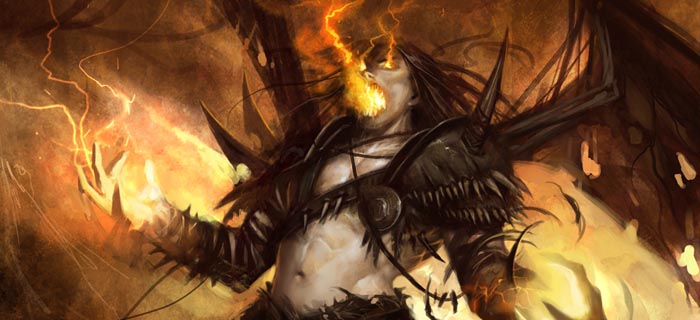Every LOST fan should play LOST: Via Domus
ABC’s LOST is certainly a phenomenon. I never thought I’d be sucked in, despite the fact that many, many friends recommended the show. But after watching one episode on Netflix Instant Streaming, I was hooked. You’ve got Lord of the Flies drama, giant smoke monsters, time travel, and, of course, licensed video game adaptions.
WARNING: This post may contain MILD SPOILERS for LOST. Read at your discretion.
Ubisoft’s LOST: Via Domus gets a lot of flak. And, to be fair, a lot of it is deserved. But that’s not to say that reliving the adventures of Jack Shepard, Kate Austin, Jin “Da Udders” Kwon, and John “The Somehow an Expert in Wilderness Survival” Locke isn’t worth the ride. At the end of the day, even with the flaws, the LOST video game still manages to feel like you’ve just been to the infamous Island.
You play as… actually, your character doesn’t have a name. Or a past. Or his luggage. While some of the Oceanic Flight 815 passengers regain old abilities or find deeper meaning in their lives, you play as the archetypal  amnesiac who has to reconstruct his past if he hopes to have a future. Sure, it’s a bit cliche, and a portion of the fanbase will be sad you’re not playing as a canon Lostie, but the reality is that inventing this type of persona was the only way Ubisoft could have crafted a coherent story that made sense in the context of the show. After all, there are countless red shirt crash survivors, who’s to say our photo-happy friend wasn’t one of them?
amnesiac who has to reconstruct his past if he hopes to have a future. Sure, it’s a bit cliche, and a portion of the fanbase will be sad you’re not playing as a canon Lostie, but the reality is that inventing this type of persona was the only way Ubisoft could have crafted a coherent story that made sense in the context of the show. After all, there are countless red shirt crash survivors, who’s to say our photo-happy friend wasn’t one of them?
Via Domus is an adventure game and, as such, you’ll spend a lot of time picking up items, talking to other people, solving puzzles a single puzzle over and over, and walking around the Island. While the voice work is hit/miss, the (slightly repetitive) puzzles are genuinely fun and challenging. I was initially skeptical that puzzles could be easily worked into the context of LOST, but I suppose that, in hindsight, Seasons 1-3 consisted solely of Sayid solving battery puzzles in every fucking episode.
The true gem in this game isn’t something quantifiable like graphics or replay value (nearly zero). It’s the opportunity to be on the Island. To walk along the beach crash site, to crawl into the Black Rock, to explore the depths of the jungle and the secrets therein. The first time I was able to tentatively tiptoe into the Swan Station and steal some food from the supply closet, it was like I was revisiting an old friend. It felt genuine, and Ubisoft did a great job at recreating the atmosphere and tension that makes LOST what it is. Via Domus has many moments like this, especially near the end of the story as events are unraveling at breakneck pace.
On that note, the pacing of LOST: Via Domus is easily both the game’s strongest and weakest suit. In the first half of the game, practically nothing happens. Sure, the plane crashes, there’s a smoke monster, and the Others start causing trouble, but for a LOST fan none of these events will be particularly startling. Your character at this point is fairly one-dimensional, as your only motivations are “find out who I am” and “stop that mean stranger in a suit from punching me in the face again.” The game is also ridiculously easy for the first half, and you’ll be racking up half a dozen achievements for doing things like tapping the A button to talk to people or walking into the jungle.
By the second half, how ever, the LOST videogame is an entirely different beast. You’ve got a glimpse at some of the answers about who you are and why you’re on the Island and the game has no intention of letting you rest on your laurels for a second. You will find yourself making tough decisions, and discovering horrible truths with just enough time to say “Wait, what the FUCK?” right before the patented “LOST” epilogue title flashes (the game is broken into several “episodes” that are bookended by the traditional show opening/ending).
ever, the LOST videogame is an entirely different beast. You’ve got a glimpse at some of the answers about who you are and why you’re on the Island and the game has no intention of letting you rest on your laurels for a second. You will find yourself making tough decisions, and discovering horrible truths with just enough time to say “Wait, what the FUCK?” right before the patented “LOST” epilogue title flashes (the game is broken into several “episodes” that are bookended by the traditional show opening/ending).
The events that lead to the startling finale, as well as the finale itself, are all incredibly well-written and well-designed from both a gaming and television standpoint. It’s a shame the game probably won’t have a direct sequel, since (as you can imagine) the ending poses just as many questions as it answers.
The graphics are generally strong; all of the locations look just like their prime-time counterparts. The beach, Dharma stations, and jungle all look excellent. And they should, as they were reconstructed from pictures and schematics of the actual ABC sets. Character animation is decent, and modeling is hit/miss. Some characters, like Jack, Ben Linus, and Colonel Hurley Sanders, look spot-on. Other people, like Claire and Desmond Hume, are barely recognizable. This isn’t helped by the fact that the voicework is just as spotty. While the main characters you interact with are voiced by the original actors, most of the cast is played by stand-ins who sound like they’re trying too hard. Still, it’s not a deal-breaker, and some of the lines the game has to offer are hilarious. I literally laughed out loud (aka LOL’ed) when I asked Benjamin Linus how he got to the Island. “A twister picked up my house in Kansas and dropped it here,” he sneered, “Got any other stupid questions?” A perfect delivery by Michael Emerson (or someone who sounds just like him).
As I noted before, the game is fairly easy, especially the first half. Aside from the fusebox puzzles you’ll frequently encounter, every other situation can be solved by randomly spamming dialog options at each character, or by running where a compass tells you to. Sure, there are extra challenges and secrets if you look for them, but you could feasibly complete LOST: Via Domus in under 5 hours with a brute force approach. However, I highly recommend you take your time, explore, and enjoy.
LOST: Via Domus is not a great game. It may not even be a good game. But it’s an amazing LOST experience. If you’re looking to get a more personal look at the Island, the Others, or just John Locke’s sexy bald head, you can pick up this adventure in bargain bins around the country or online today.







Great Post, very infomational